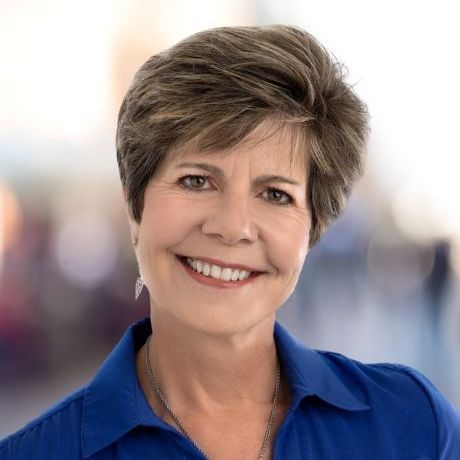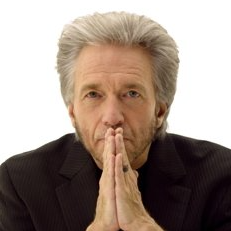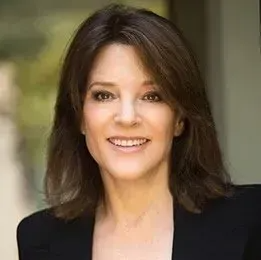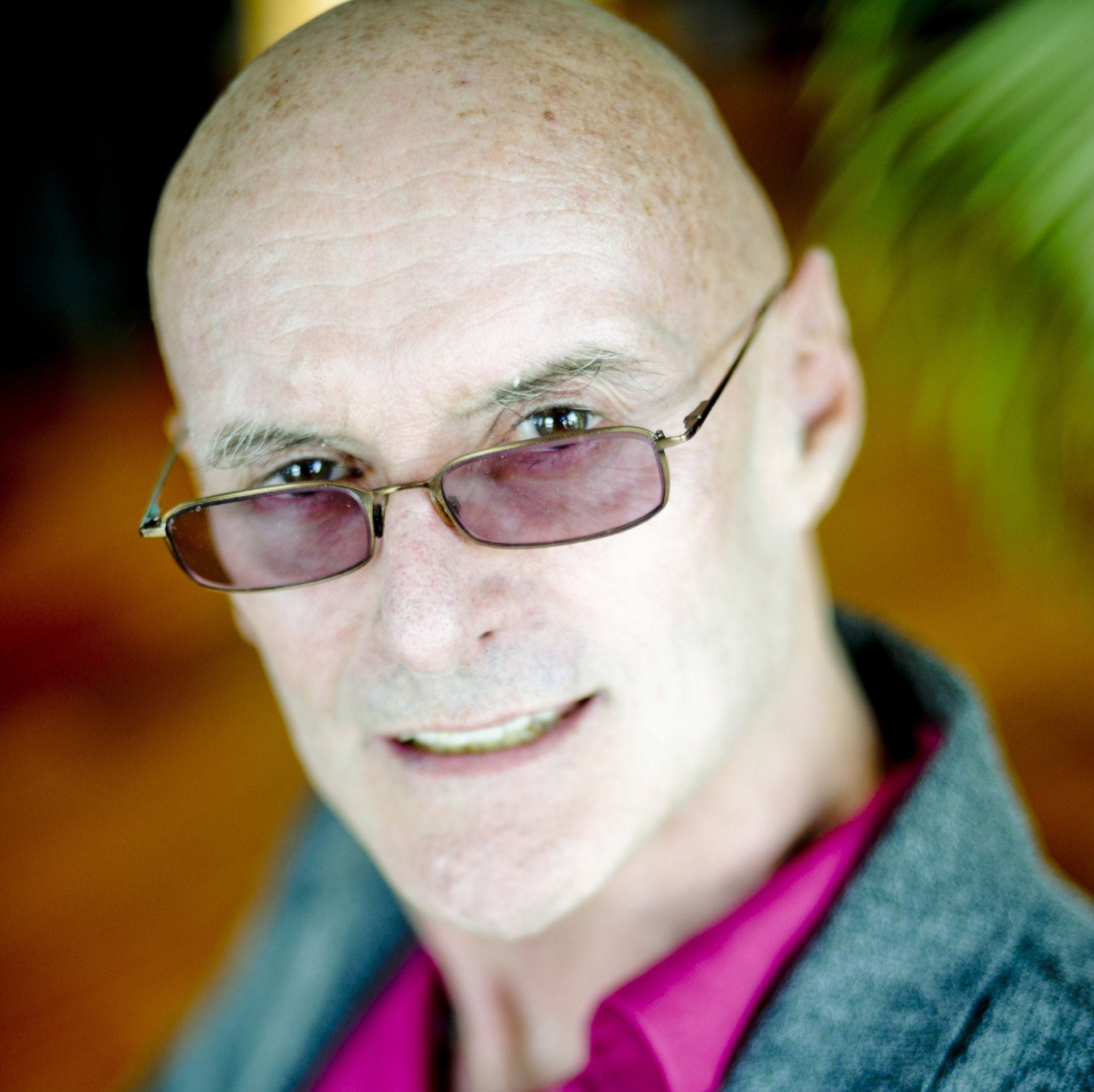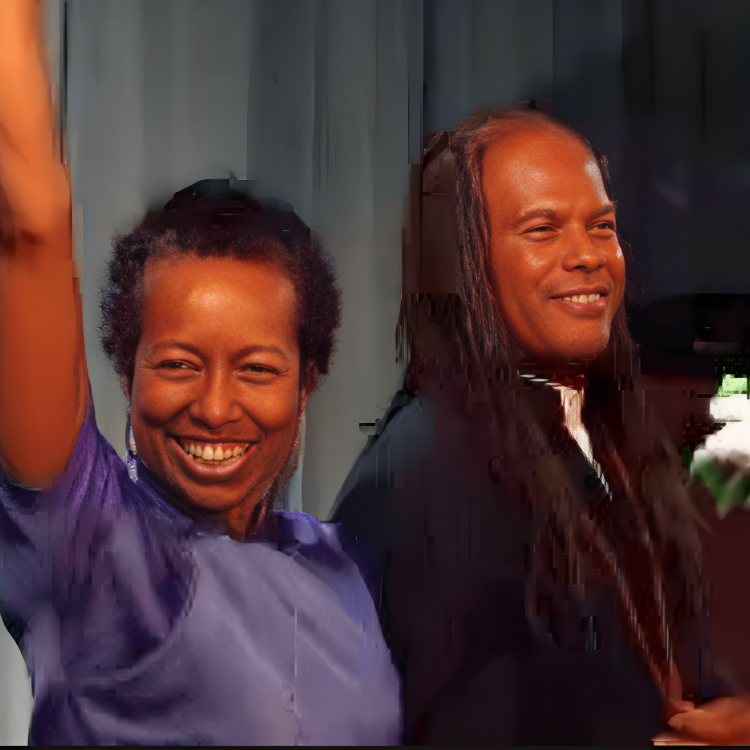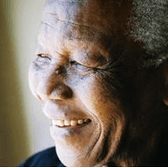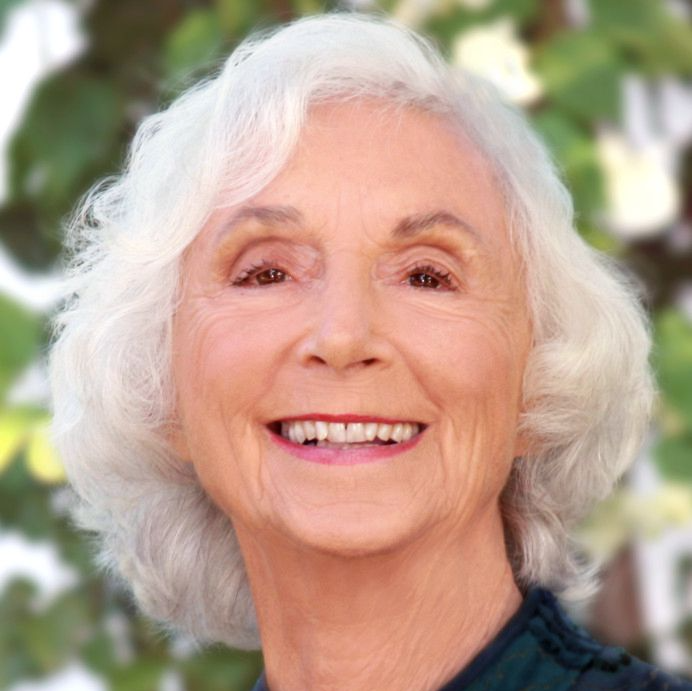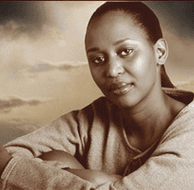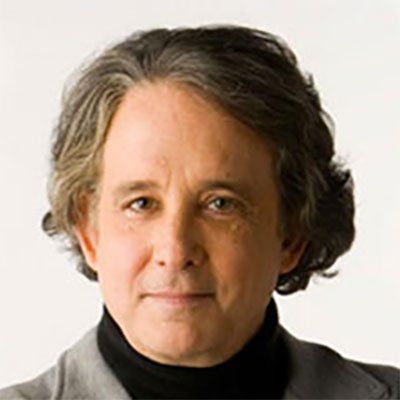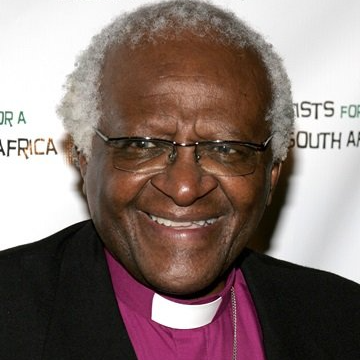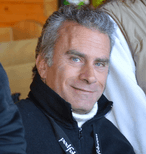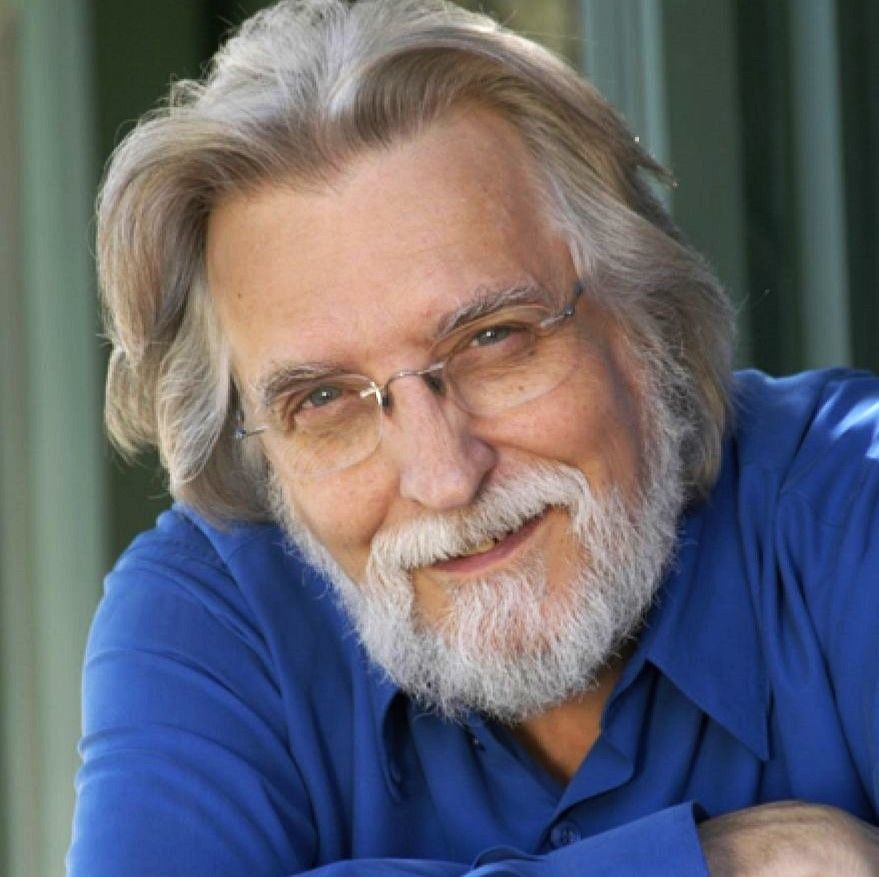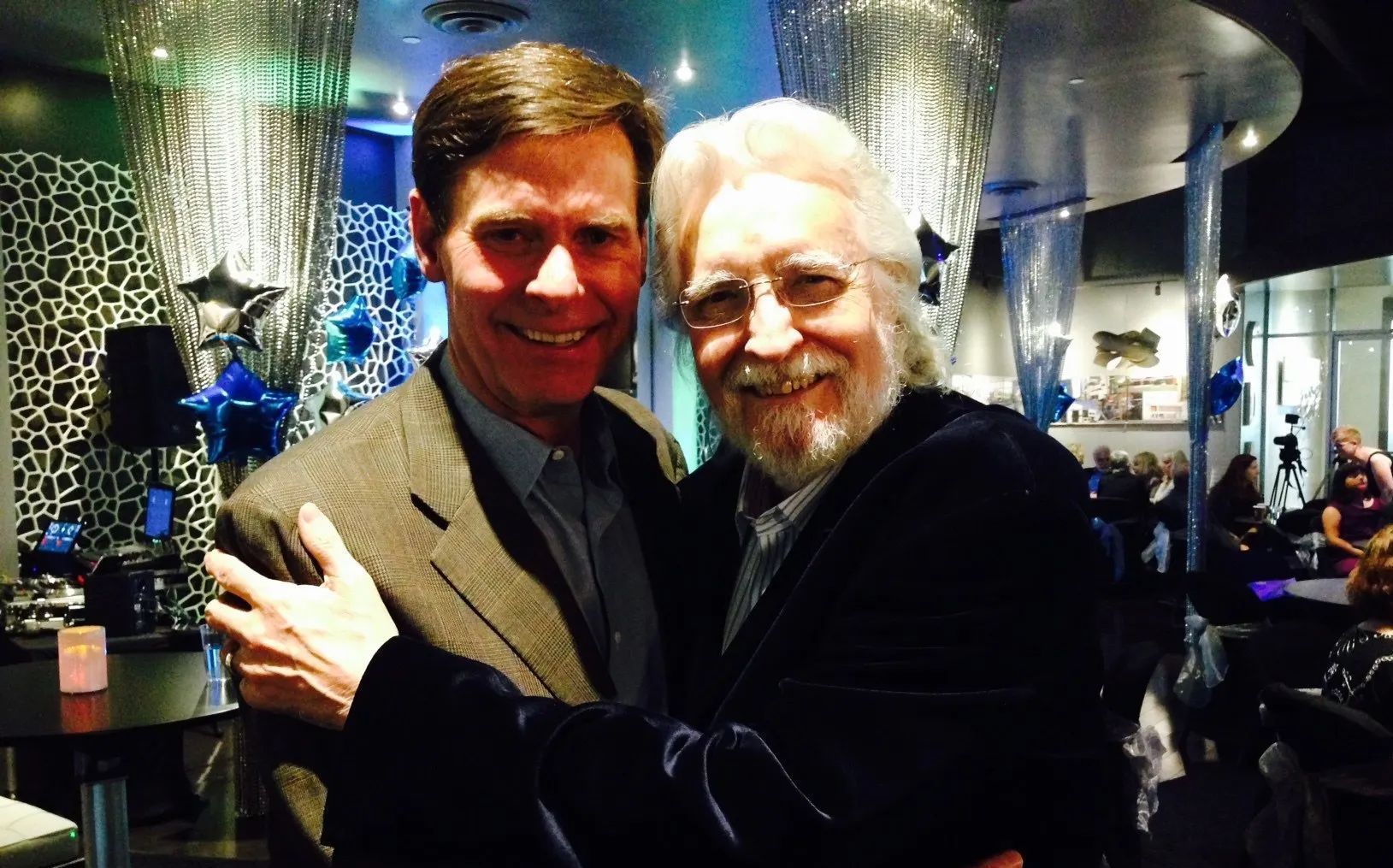RECIPIENTS OF THE HUMANITY'S TEAM
SPIRITUAL LEADERSHIP AWARD
The Spiritual Leadership Award has become the standard among global awards honoring individuals for Distinguished Inspired Action and Eminent Visionary Leadership.
2024 Suzanne Giesemann
In 2024, Suzanne Giesemann was awarded the 2024 Spiritual Leadership Award, presented by Steve Farrell during a live ceremony in Boulder, Colorado. Suzanne was unanimously selected by Humanity’s Team’s Global Council in recognition of her tireless efforts to raise public awareness of mediumship and Oneness. Her inspiring contributions, including books, seminars, and programs, have positively impacted people worldwide.
Steve Farrell spoke to an audience of Humanity’s Team members and local friends about why Humanity’s Team chose Suzanne for this year’s award. Then, in true ”Suzanne Giesemann style,” she spoke to those gathered in her honor, revealing the box of “props” that she brought along to demonstrate why she was so honored to accept the award. At one point, she reached into her basket of goodies, showing the audience boxes of business cards. She explained that she felt everyone who is a part of the organization should do as she does: become card carrying members of Humanity’s Team. Great idea, Suzanne! Thank you for being you, and it’s just like you to think of all of us on your momentous day. Congrats and gratitude all the way around..
2022 Nassim Haramein
In 2022, Humanity’s Team honored Nassim Haramein with the inaugural Unified Science Award, recognizing his groundbreaking contributions to science and spirituality. Haramein’s work stands out for integrating a foundational awareness of the interconnectedness of all things, which sets him apart from many modern scientists. Over the past 35 years, he has explored deep connections across diverse fields, including physics, mathematics, cosmology, quantum mechanics, biology, and even anthropology and archeology. He is preparing to publish a significant paper on Unified Field Theory, aiming to establish a universal framework from which to approach physics and unified science.
Standing out as a significant difference between Nassim and other modern scientists is that Nassim begins his experiments with a foundational awareness of the Unity or Oneness of all things. We believe this foundation of Oneness has guided Nassim forward on his nontraditional path, without the breadth of resources available to the typical scientist, leading him to be the first to correctly predict that the size of the proton was 4% smaller than current measurements taken at the time had shown. His prediction was confirmed by a team of scientists at the Paul Scherrer Institute utilizing muons in a proton accelerator, which also reflected this new 4% smaller radius.
2021 Gregg Braden
The annual Humanity’s Team Spiritual Leadership Award is a select recognition of the brightest leaders encouraging conscious living and demonstrating their teachings through their actions. In 2021, Gregg Braden was chosen to receive this prestigious award for the incredible contributions he has made in the linking and understanding between science, spirituality, and human potential.
2020 Marianne Williamson
After Steve Farrell, Humanity's Team Worldwide Executive Director, introduced the 2020 Spiritual Leadership Award celebration for Marianne Williamson she spoke to each present member of the Global Council and all present country coordinators. COVID briefly came up and Marianne said "we are living in a devolutionary time with great evolutionary potential." She went on to say that our acknowledgment of one another is really important especially in these times. Steve's introduction to Marianne was beautifully fitting of her accomplishments.
2016 Ken Wilber
On Friday, June 24th Humanity's Team presented Ken Wilber with our Spiritual Leadership Award. The ceremony took place in Denver, Colorado at Ken's home. While it was a much more intimate setting than past presentations, the words Steve Farrell, Humanity's Team Worldwide Executive Director, and two Global Council members spoke came from the heart.
"Somehow life was bound to deliver someone who would feel called to, and who would be dedicated to drawing up this framework and map, and who would make it possible for us to know the territory of us. Someone who would make us aware of dimensions that most of us never knew existed, and who would help us expand our identity and make it awesomely desirable and attractive for us to cultivate our own greatness and to accelerate our evolution.
This person is Ken Wilber, and it is for this reason that we are giving you our highest award: the Humanity's Team 2016 Spiritual Leadership Award. We are giving our award to you Ken, as a gesture of immense gratitude for a life given to this task and for developing the Integral Theory that has become a foremost approach within the larger fields of integral studies and meta-theory.
Today, the Integral Theory that weaves together the significant insights from all the major human disciplines of knowledge, including the natural and social sciences as well as the arts and humanities, is being used in a wide range of distinct academic and professional fields such as art, healthcare, organizational management, ecology, congregational ministry, economics, psychology, law, and feminism, while helping to pull the many different schools within each field into a more comprehensive whole and revealing how all these fields fit together in a genuine "theory of everything" for today's world.
2015 Michael B. Beckwith & Rickie Byars
Our ceremony took place at the beautiful Sunrise Ranch in Loveland, Colorado. Many joined us in person and many others from around the world joined by Livestream. Humanity’s Team presented its 2015 Spiritual Leadership award to Rev. Michael & Rickie. This was the first time this award was bestowed on a couple for their efforts in inspiring many people with new thought.
"Fortunately, a growing number of powerful world leaders have dedicated their lives to shining the light on spiritual truth. We are with a powerful couple today who are dedicating their lives to this and who are leading the way. Just last month, days before Easter Sunday, Rev. Michael was invited to go on The Today Show, a program with millions of viewers, to talk about "being spiritual but not religious." It was an incredible opportunity to educate viewers and this was only one moment in the busy lives of the Beckwiths. Year-round Rev. Michael and Rickie use their time and celebrity to educate people and to invite people into acts of humanitarian and environmental service. Of course, this is why we are gathered here this evening: to honor, acknowledge and celebrate Rev. Michael Bernard Beckwith and Rickie Byars Beckwith. Each is deserving of our 2015 Spiritual Leadership Award and together, they are like no other."
"Rev. Michael & Rickie embody the purpose the Humanity's Team Spiritual Leadership Award: to highlight and acknowledge the individual (in this case couple) who create life-changing spiritual impact on the world—in how we view ourselves, God, life and one another. And, in doing so, remind humanity of Who We Really Are: We Are All One; interrelated, interconnected and interdependent."
"In Humanity's Team we observe Rev. Michael & Rickie are having enormous impact. On the world stage they are making a huge difference. They don't just speak their important messages, they embody them! Many are opening to new understands about God and about life. Not since Martin Luther King, Jr., has there been a minister, or a couple, so widely admired and focused on non-violence, involved in creating a new paradigm for living and out front, teaching unconditional love."
2014 Nelson Mandela
Kofi Annan, the former United Nations Secretary-General, said Nelson Mandela was perhaps the most respected, most admired international figure in the world. We agree and we in Humanity’s Team were honored to give the late Nelson Mandela our spiritual leadership award during a ceremony at Freedom Park in Pretoria, South Africa on Sunday, July 27th. Sello Hatang, the Executive Director of the Nelson Mandela Foundation received the award on behalf of the late Nelson Mandela.
Nelson Mandela embodied Ubuntu in an exceptional way. He didn’t talk much about his inner journey except to say he went within during his 27 year prison stay and we see the fruit of this in the extraordinary gestures he extended to his jailers who were invited to sit in the front row during his inauguration as President of South Africa and in the way he brought the white and colored community together to create a “Rainbow Nation” serving the common good. The late Nelson Mandela’s patience, compassion and authentic leadership are legendary.
To all of you who support Humanity’s Team by volunteering or financially contributing to our work, thank you so much! You make our global outreach possible!
2013 Barbara Marx Hubbard
On May 27th, 2013, Humanity's Team presented internationally renowned author, visionary, social innovator, evolutionary thinker and educator, Barbara Marx Hubbard the 2013 Spiritual Leadership Award at Sunrise Ranch in Loveland, Colorado for her lifelong contribution to the “birthing” of us through the threshold of great possibility, of our own conscious evolution, the social, spiritual, scientific and technological potential of humanity.
2011 Immaculée Ilibagiza
Immaculée Ilibagiza accepted the 2011 Spiritual Leadership award on May 18, 2011, for having demonstrated ultimate acts of Oneness. Immaculée is a living example of faith put into action. Immaculée's life transformed dramatically during the 1994 Rwandan genocide where she and seven other women spent 91 days huddled silently together in the cramped bathroom of a local pastor's house. Immaculée entered the bathroom a vibrant, 115-pound university student with a loving family - she emerged weighing just 65 pounds to find her most of her family had been brutally murdered. Through prayer and time, she eventually found it possible, and in fact imperative, to forgive her tormentors and her family's murderers.
From a talk Immaculée gave in 2005: "When we came out [of hiding, out of the bathroom], I found out that everyone in my family was dead, my mom, my dad, my brothers, my neighbor Tutsis, my school mates. The whole country was dead bodies all over. I thought it was almost maybe the end of the world. Or the beginning, but one thing was real. The forgiveness I’ve experienced, the love I got in the bathroom about God was so real, it was a gift that helped me relieve the pain of losing my parents. I am so grateful...I even went to the prison to visit the killer of my parents. I wanted to find out how I would feel. As I saw him suffering, sitting down, a man who was respected. I really did feel compassion. I couldn’t believe that sin could bring somebody into a situation like that. If he couldn’t think of it himself, if he couldn’t love himself, to protect himself from coming into that situation, how can he think of me? How can he think of not hurting me? I knew for sure that he couldn’t know what he was doing. And I forgave him."
Why is it that disaster returns us to Oneness in this way? Why is it that we humans only start to ‘behave’, when crisis walks into the room?
On the ground, self-definition, and the stepping-into that, is instantaneous, and what we call ‘heroes’ emerge. Firemen race toward the shore, to evacuate those from the water’s edge; a policeman stands in the tsunami’s path, frantically waving traffic to higher ground; a man uses a dump-truck to ferry people to safety, returning again and again as the water closes-in; a city-office worker stays at her post, calmly warning residents, as the water levels rise (This is who I am. This is why I’m here). In the shelters, refugees share their space, food, water, and warmth. In the neighborhoods, people put aside past quarrels, and welcome strangers into their homes to share what they have (This is who I am. This is why I’m here). Around the world, hearts burst open, and hands reach into pockets, or join together in prayer.
It seems then, that disaster has a gentler role: to bring each of us an Opportunity to re-define ourselves, so we might step into the highest definition of Who We Are and become the Oneness that we seek. The question then becomes: Can we stay there? Can we continue to see each other as each other, to keep carrying each other to higher ground, and to love our neighbors and share with strangers, even as disaster leaves the room?
2010 Andrew Harvey
Humanity's Team Global Council meeting presented its 2010 Spiritual Leadership Award to internationally renowned mystical scholar and Sacred Activist architect Andrew Harvey. The award presentation — was held May 19th at the New York Open Center in New York City, the largest urban holistic learning center in the United States — recognized Andrew’s extraordinary demonstrations of inspired action and visionary leadership through his life lived.
Born in south India and living there until age 9, Andrew credits this early period with shaping his awareness of the Oneness of humanity, the inner unity of all religions and a unified, interconnected world infused with the sacred. Later educated in England, including at the University of Oxford, and now living near Chicago, he is a powerful messenger of New Spirituality values and a passionate articulator of the vital importance of Sacred Activism in helping humanity through its current crisis, which Andrew sees as a crisis of birth that is producing a new human sense of Self that expresses the ancient truth and sacred belief of Oneness with God and life.
Andrew’s many gifts to humanity reflect the heart in action. They range from his distinguished mystical scholarship, consummate translations and interpretations of the Sufi mystic Rumi and extraordinary spiritual teachings and writings to his transformative guidance and direction of the structure and growth of Sacred Activism in the United States and around the world.
We in Humanity’s Team also observe that a hallmark of his leadership, especially through Sacred Activism, is that it is intended to create more leaders, not followers. To us, that is the foremost sign of a spiritual leader.
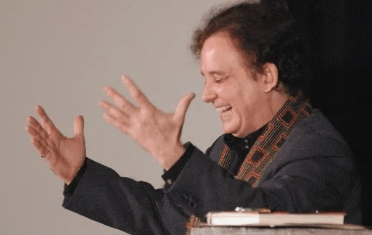
2009 Archbishop Emeritus Desmond Tutu
Anglican Archbishop Emeritus Desmond Tutu, the South African activist, won the Nobel Peace Prize for his international advocacy of a non-violent end to South African apartheid. More recently, Humanity's Team's Global Council presented the Spiritual Leadership Award to Archbishop Tutu at Freedom Park, South Africa.
By "leadership," we don't mean a leader who says, "Let's do it this way." We mean somebody who says, "I'll go first." That takes courage. And that is what Desmond Tutu embodies.
Indeed, Archbishop Tutu, who has demonstrated his spiritual leadership in solving some of the world's most insurmountable challenges, embodies many of the New Spirituality's greatest visions of courage. We are thrilled and honored to give this award to this world leader and deeply honored he has agreed to accept it.
2008 Ciro Gabriel Avruj
Humanity’s Team Global Council chose Ciro Gabriel Avruj, Humanity’s Team country coordinator of Argentina, to receive the 2008 Spiritual Leadership award. Gabriel has a degree in Business Administration and has also studied Social Responsibility and Overall Human Development. Beginning in his youth, he took interest in the subject of consciousness and the spiritual quest. He is widely traveled and personally knows a number of spiritual world leaders. Gabriel is confined to a wheelchair following an accident as a teen. He serves as the Country Coordinator for HT Argentina.
2005 Neale Donald Walsch
Humanity’s Team Global Council voted unanimously to present Neale Donald Walsch the very first Spiritual Leadership award. The award was presented during the May 2005 Global Council meeting at Bard College where Neale was singled out for receiving and publishing the Conversations with God messages. In Wilsonville, Oregon in June 2003, Neale co-founded Humanity’s Team along with Steve Farrell, the Worldwide Executive Director of Humanity’s Team.
ANNANDALE-ON-HUDSON, N.Y. -- March 29, 2005 -- Weapons of mass destruction do exist in Iraq. Indeed, they exist worldwide. But they aren't the military hardware you might think. They are an arsenal of individual and collective beliefs that proclaims, "My path is the only right path to God."
Close to 1,000 people from around the world -- clergy and laypeople, scholars and students, professionals and laborers, business people and artists, policy makers and concerned individuals of many faiths and traditions -- intend to locate and dismantle those weapons in an international theological conference to be held at Bard College, 90 miles north of New York City, June 3 through 5.
The conference, "Seeds of Transformation: Toward a Spiritual Renaissance in a Time of Fundamental Change" (http://bard.humanitysteam.org), will reveal a trend in which people around the world inspect the spiritual weapons in their arsenal of beliefs, including ideas that we are "better" than others, that we are separate from one another, and in particular that God wants it only one way on this earth and that we had better get it right or we are sure to be condemned.
The groundbreaking event, which will also explore the ramifications of the trend, will feature some two dozen speakers, including world-renowned authors, theologians, scientists, artists and spiritual leaders of Eastern, Western and indigenous faiths.
It is co-sponsored by the Institute of Advanced Theology at Bard College (www.bard.edu/iat), dedicated to a better understanding of the world's religious traditions, and Humanity's Team (www.humanitysteam.org), a nonprofit, pluralistic educational movement founded by the "Conversations With God" author Neale Donald Walsch.
Besides lectures, panel discussions, seminars and workshops, the conference will feature special screenings of award-winning films depicting the changing religious and spiritual climate, a live theatrical production of a critically acclaimed religious drama, inspiring sculptures and paintings of scriptural figures and spiritual expression, uplifting performances by Emmy and Grammy Award-winning musicians, and an outdoor multifaith prayer service officiated by clergy from a range of faith traditions, among the many activities of intellectual and spiritual enrichment.
The event will also serve as the site of Humanity's Team's 2005 Worldwide Gathering. Dubbed a "civil rights movement for the soul," Humanity's Team -- composed of some 10,000 people from 94 countries on six continents -- seeks to free people from oppressive beliefs about God, life and each other so that humanity can truly experience unity and oneness.



